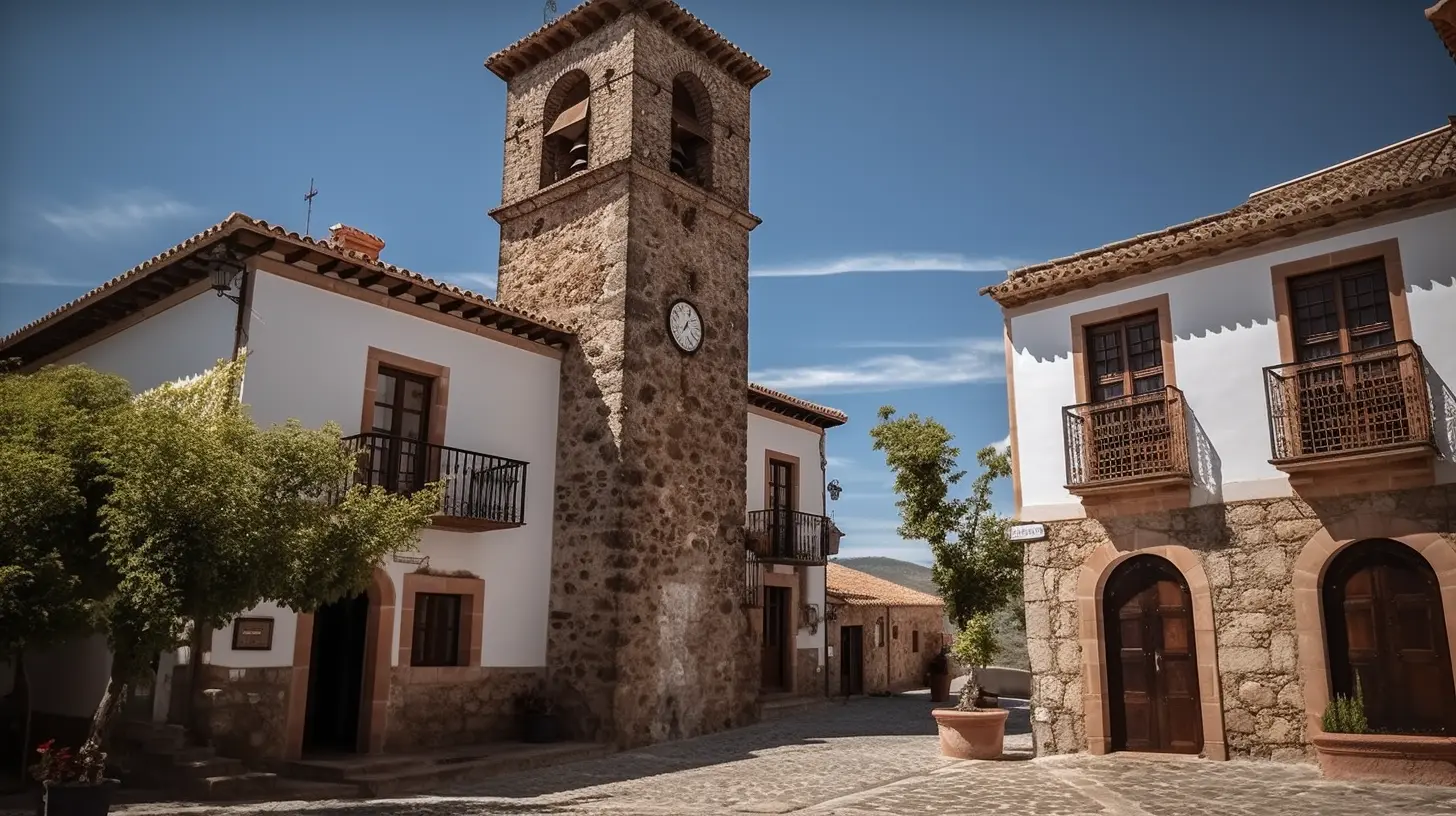Moving to Spain in 2023
Welcome to the land of siestas, flamenco, and tapas! Spain has long been a popular destination for expats seeking a new life under the Mediterranean sun. This guide will help you navigate the process of moving to Spain, from finding the perfect place to live to the cost of living and dealing with legal requirements.
Finding the best places to live
Spain offers a diverse range of locations to suit every lifestyle. Whether you’re seeking the hustle and bustle of cosmopolitan cities like Madrid and Barcelona, the laid-back vibes of beachside towns like Alicante and Malaga, or the tranquil charm of rural Andalusian villages, there’s a spot for you. Start by researching your options and then create a shortlist of preferred locations. Once you’ve narrowed it down, plan a scouting trip to experience the areas firsthand before making your final decision.
Cost of Living
Spain is generally more affordable than many other Western European countries. However, the cost of living can vary greatly depending on where you choose to reside. Major cities tend to be more expensive, while smaller towns and rural areas offer a lower cost of living. To maximize your lifestyle and financial freedom, research the average cost of housing, groceries, transportation, and leisure activities in your desired area. Knowing this information beforehand will help you budget and plan accordingly.
Moving to Spain checklist: Visas, residency and more
Moving to a new country can be a bureaucratic adventure. It’s essential to have a clear understanding of the legal requirements and paperwork involved in the process. Here’s a basic checklist to get you started:
- Obtain a visa: Depending on your nationality and intended stay duration, you may need a visa to enter Spain. Research the visa types available and apply for the appropriate one.
- Secure residency: Apply for a residence permit upon arrival if you plan to stay long-term.
- Get an NIE number: This is a unique identification number for foreigners in Spain. It’s required for various transactions, such as opening a bank account, buying property, and registering for healthcare.
- Register for healthcare: Once you have your NIE number, register for healthcare in Spain. This will grant you access to the Spanish public health system.
- Open a local bank account: To facilitate transactions and access financial services, open a bank account in Spain.
Transporting Your Goods

Shipping your belongings to Spain can be costly and time-consuming. To minimize stress, consider hiring a reputable international moving company. Get quotes from several companies and compare their services, prices, and customer reviews. Keep in mind that it’s usually more cost-effective to sell or donate large items (like furniture) and purchase replacements in Spain.
Getting utilities connected in Spain
Once you’ve settled into your new home, you’ll need to set up utilities such as electricity, water, and gas. In most cases, the property owner or real estate agent can help you with this process. However, it’s essential to familiarize yourself with the utility providers in your area and understand their pricing structures. Additionally, don’t forget to arrange for internet and phone services, as staying connected is crucial for both work and leisure.
Legal and Administrative Requirements

Requirements for moving to Spain after Brexit
Brexit has significantly altered the landscape for British citizens looking to live, work, or retire in Spain. Here are the key points you need to know:
How long can I stay in Spain after Brexit?
Before Brexit, British citizens could enjoy unrestricted travel within the European Union. Now, as a British passport holder, you can stay in Spain for up to 90 days within a 180-day period without a visa. If you plan to stay longer, you’ll need to apply for the appropriate visa and meet the requirements for residency.
Can Brits retire to Spain after Brexit?
Yes, Brits can still retire to Spain after Brexit. However, the process has become more complex, and you’ll need to apply for a non-lucrative visa. This type of visa requires proof of sufficient income or savings to support yourself without working, as well as evidence of comprehensive health insurance coverage.
Visas and claiming residency
If you’re planning to stay in Spain for more than 90 days, you’ll need to obtain the appropriate visa and claim residency. Here’s a breakdown of the main visa types and requirements:
Spain visa application options — staying longer than 90 days
- Non-Lucrative Visa: For those who want to live in Spain without working, such as retirees. You must prove you have enough income or savings to support yourself and any dependents.
- Work Visa: If you have a job offer from a Spanish employer, they will sponsor your work visa application. Alternatively, if you’re self-employed or plan to start a business, you can apply for a self-employment visa.
- Student Visa: If you’re enrolling in a Spanish educational institution, you can apply for a student visa, which allows you to study and work part-time.
Registering in Spain as a Family Member
If you have a family member who is an EU/EEA or Swiss national living in Spain, you can apply for residency as their family member. This applies to spouses, registered partners, direct descendants under 21 or dependent, and dependent direct relatives in the ascending line.
Spouse Visa Requirements
If your spouse is a Spanish citizen or a legal resident of Spain, you can apply for a spouse visa to join them. To qualify, you’ll need to provide:
- A valid passport
- A marriage certificate (translated into Spanish and legalized)
- Proof of your spouse’s legal residency or Spanish citizenship
- Evidence of sufficient financial means to support yourself and your spouse
- Proof of comprehensive health insurance coverage
Remember, living in Spain is about more than just tapas and flamenco; it’s about embracing a whole new way of life. By understanding the legal and administrative requirements, you can focus on settling into your new home and soaking up the Mediterranean sun. ¡Buena suerte!
Applying for an NIE Number
Embarking on the Spanish adventure of a lifetime means cutting through some red tape, but fear not! We’ve got you covered with all the tips and tricks to navigate the NIE number application process with ease.
Applying for an NIE number in person via a Spanish Consulate abroad
If you’re the type who enjoys tackling challenges head-on, opt for applying for your NIE number in person at a Spanish Consulate in your home country. Consider it a warm-up for the adventures to come! Here’s how to tackle it like a pro:
- Schedule an appointment at the Spanish Consulate well in advance, as spots fill up quickly.
- Arrive with a completed EX-15 form, your valid passport, and two passport-sized photos.
- Brace yourself for a small fee, which can be paid on-site.
- Once approved, you’ll receive your NIE number, and you’re one step closer to your Spanish dream!
- Authorise a third party to obtain your NIE number on your behalf
For those who prefer a smoother, more streamlined approach, consider enlisting the help of a trusted third party to secure your NIE number. A Spanish lawyer or gestor can act on your behalf, and they’ll appreciate your efficient mindset. To make it happen, follow these steps:
- Grant power of attorney to your chosen representative through a notary.
- Provide your representative with a copy of your passport and the completed EX-15 form.
- Sit back and relax, knowing your NIE number is in good hands.
Empadronamiento

Where, why, and how to get empadronamiento
Establishing your local roots is an essential part of immersing yourself in Spanish culture. The empadronamiento process allows you to register with your local town hall, unlocking the full spectrum of Spanish experiences. Here’s how to master the process:
- Locate your nearest town hall (ayuntamiento) and request an appointment.
- Bring along your rental contract or property deed, passport, and NIE number.
- Complete the registration form provided by the town hall.
- Congratulations! You’re officially a local and can access local services and benefits like healthcare, voting, and more.
Tax Residence in Spain
Residency for tax purposes
Embracing the Spanish lifestyle means understanding the tax landscape as well. Tax residency status can have a significant impact on your financial obligations, so let’s dive into the essentials:
- If you spend more than 183 days per year in Spain, you’re considered a tax resident. Remember, it’s not just about the sangria and siestas!
- As a tax resident, you’re required to pay Spanish income tax on your worldwide income in Spain. Time to brush up on your Spanish tax laws and double taxation treaties.
- Non-residents are only taxed on income generated in Spain, making it crucial to understand your tax residency status.
- Consult with a tax advisor to optimize your financial strategy, ensuring you’re maximizing your Spanish experience without unwanted surprises.
By approaching these essential steps with a proactive and efficient mindset, you’ll find that setting up your new life in Spain can be a breeze. So go forth, and embrace the vibrant, exciting adventure that awaits you in Spain!
Property Matters
In the enchanting land of Spain, the allure of sun-soaked beaches, captivating history, and a laid-back lifestyle beckon expats from around the globe. But before diving into the Mediterranean bliss, it’s crucial to understand the logistics surrounding property, rentals, and transportation. In this section, we’ll explore the essential aspects of acquiring property, renting it out, and obtaining a Spanish driving license.

Buying Property
When it comes to purchasing your dream home in Spain, preparation is key. Start by researching the market to identify the most suitable locations and property types for your lifestyle and budget. Make sure to engage a reputable, bilingual lawyer to help you navigate the legal intricacies of the Spanish property market. They will guide you through the necessary steps, such as obtaining an NIE number (Número de Identificación de Extranjero), which is a requirement for property transactions.
Next, consider getting pre-approval for a mortgage, as this will give you a clear idea of your budget and allow you to move quickly when you find the perfect property. Don’t forget to factor in transaction costs, including taxes, notary fees, and registration fees, which can add up to 10-15% of the property’s value.
Once you’ve found your dream home, negotiate the price and sign a reservation contract with the seller. This agreement will secure the property for a limited period while your lawyer conducts due diligence. Finally, sign the escritura (deed) before a notary, pay the remaining balance, and receive the keys to your new Spanish abode.
Move to Spain and Renting Out a Property
Spain’s vibrant rental market provides an excellent opportunity to generate passive income. Begin by researching the local rental market to set a competitive rate for your property. Consider hiring a property management company to handle tasks like marketing, tenant screening, and maintenance, ensuring a stress-free experience.
Be prepared to comply with Spanish rental laws and regulations, which can differ by region. This may include registering your property with the local town hall and obtaining a tourist rental license if you plan to rent it out as a vacation home. Also, don’t forget to declare your rental income and pay taxes accordingly.
Purchase of Spanish Vehicles and Spanish Driving License

You will need to provide the following:
To fully embrace the Spanish way of life, owning a vehicle and obtaining a Spanish driving license is essential. If you’re moving to Spain from another EU country, you can use your current license for up to two years. After that, you’ll need to exchange it for a Spanish one. For non-EU expats, the process may or may not require taking a Spanish driving test. For example, UK nationals can exchange their license without the need for a test, but drivers from Ukraine need to take a test if they want to drive trucks.
When purchasing a vehicle in Spain, you’ll need to provide the following documents:
- Valid ID (passport)
- NIE number
- Proof of residence (such as a rental contract or utility bill)
- Proof of insurance
Upon completing the purchase, you must register the vehicle with the local traffic department, which will issue a new Spanish registration certificate and license plates. Lastly, don’t forget to pay the registration tax and annual road tax to enjoy the freedom of the open road under the Spanish sun.
Working and Setting up a Business in Spain
Living in Spain as a self-employed person or entrepreneur can be an invigorating and life-changing experience. The picturesque landscapes, rich culture, and pleasant weather attract many British citizens to take the plunge and make the move. But how do you navigate the Spanish authorities and set up a Spanish Company in a European Union country that has its own unique set of rules?
How can I Move to Spain as a Self-Employed Person?

Taking the leap to move to Spain as a self-employed person might seem daunting at first, but with the right guidance, it becomes an achievable Spanish dream. Before moving to Spain, UK citizens must apply for a non-lucrative visa or a self-employed visa. This will require you to demonstrate sufficient funds to support yourself while living in Spain, as well as provide documentation such as a medical certificate and proof of health cover.
As a self-employed individual, it’s crucial to know that the Spanish authorities require you to register with the Social Security system, making you eligible for public health insurance (including cover for immediate family members too). However, many British nationals also opt for private health insurance to ensure a comprehensive healthcare plan.
Establishing a Limited Company

Once you’ve acquired your visa and are ready to set up your business, it’s time to establish a limited company. The process involves registering your company with the Spanish authorities, which requires a visit to the local town hall and the submission of various documents, including your Spanish NIE number and proof of sufficient funds.
In Spain, you’ll find that many local entrepreneurs, both Spanish nationals and foreign nationals, are eager to collaborate and network with you. This will not only make the transition to living in Spain smoother but also help you establish a thriving business in the Costa del Sol or Costa Blanca regions.
Signing up in Hacienda for Impuesto de Actividades Economicas (IAE)
Once you’ve registered your company, it’s time to sign up for the Impuesto de Actividades Economicas (IAE) with the Hacienda, Spain’s tax authority. This is a crucial step for any self-employed person or business owner, as it ensures that you pay tax on your Spanish income.
To register, you’ll need your NIE number, your company’s registration details, and a bank account with a Spanish bank. It’s essential to seek professional advice on navigating the Spanish taxes system and ensuring you’re compliant with local regulations.
In conclusion, moving to Spain and setting up a business requires diligence, perseverance, and a touch of adventurous spirit. As you navigate the Spanish residency process, acquire the necessary permits, and establish your business, you’ll find yourself immersed in a vibrant community of like-minded individuals. So why not take the plunge and embrace the Spanish dream? The opportunities are endless, and the memories you make will last a lifetime.
Healthcare in Spain
Life is often about exploring new horizons and embracing change. For many British citizens, living in Spain represents an exciting journey filled with endless possibilities. While moving to Spain comes with its fair share of adventures, it’s important not to overlook essential aspects of daily living, like healthcare. So, let’s dive into the Spanish healthcare system and see what awaits.
Organising Healthcare
Spain boasts an impressive public health system that ranks highly among European countries. However, to fully access its services, British nationals should consider obtaining private health insurance. This ensures that you’ll receive comprehensive coverage and have all your healthcare needs met while living in Spain.
Private health insurance is especially crucial for those moving to Spain from the UK after Brexit, as UK citizens are no longer automatically covered by the European Health Insurance Card (EHIC). Securing private health insurance will provide peace of mind and allow you to focus on enjoying your Spanish dream.
Informing the British Healthcare System
Before diving into the Mediterranean lifestyle, it’s essential to inform the British Healthcare System of your move. As a British citizen, you may still be eligible for certain benefits, such as the UK state pension. However, this requires notifying the relevant authorities of your new status as a Spanish resident. Tying up loose ends in the UK ensures a smoother transition to your new life in Spain.
How do I register for healthcare in Spain?
Once you’ve settled into your Spanish property and obtained private health insurance, it’s time to register for healthcare. Start by visiting your local town hall and applying for empadronamiento (registration) with the Spanish authorities. This will grant you access to your local health centre and other services.
Next, head to the nearest immigration office or local police station to apply for your Spanish residency. Once you have your residence permit in hand, you’ll be eligible to access Spain’s public health insurance scheme. With these essential steps completed, you’ll be well on your way to enjoying the full range of healthcare services Spain has to offer.
Healthcare in Spain: How the Spanish Health System Works
The Spanish health system is a robust, well-organized structure that offers both public and private healthcare options. The public system, funded through social security contributions, provides universal coverage for Spanish nationals, foreign nationals, and registered residents. This includes access to primary care, specialist services, and hospital care.
However, as a British national living in Spain, it’s essential to have private health insurance to bridge any gaps in coverage. Private healthcare providers offer a wealth of services, often with shorter waiting times and access to a broader network of specialists. This ensures you’ll receive top-quality care while enjoying your life on the Costa del Sol or Costa Blanca.
Living in Spain FAQ
Can I live in Spain as a UK citizen?
Yes, UK citizens can live in Spain, but the process has changed since the UK left the European Union. UK nationals need to apply for a visa and fulfill certain requirements, such as proving sufficient funds and having health cover. You will need to start the visa application process several months before you intent to travel.
How much money do you need to live comfortably in Spain?
A: Living in Spain can be quite affordable, especially compared to the UK. To live comfortably, a single person might need around €1,200 to €1,500 per month, while a family of four would need around €2,500 to €3,500 per month. Keep in mind that costs can vary significantly depending on the region and lifestyle.
Also, the effective tax rate in Spain is higher than the UK and other countries, especially for self employed people if you include the compulsory national insurance contributions that ‘autonomos’ are required to pay each month.
Is living in Spain worth it?
Many British expats find living in Spain to be a fantastic experience, thanks to its warm climate, rich culture, and affordable cost of living. However, it’s essential to research and visit different areas to ensure that Spain aligns with your personal preferences and needs.
Is it easy to live in Spain as a foreigner?
While adapting to a new country can be challenging, Spain is generally considered a welcoming and friendly place for foreigners. Learning the language and embracing the local culture will make it easier to integrate into Spanish society.
How much money do I need in the bank for Spanish residency 2023?
For a non-lucrative visa, you need to show that you have sufficient funds to support yourself without working in Spain. The Spanish authorities require proof of income or savings equivalent to €27,115 for a single applicant or €33,894 for a couple, with an additional €6,778 for each dependent.
Can UK residents still move to Spain?
Yes, UK residents can still move to Spain, but they must follow the new immigration requirements set by the Spanish government after Brexit. This includes obtaining the appropriate visa, such as a non-lucrative visa or a golden visa.
How much money do you need to move to Spain from the UK?
The amount of money needed to move to Spain varies depending on the individual’s situation and preferences. Considerations include visa application fees, travel expenses, housing costs, health insurance, and living expenses.
What are the requirements to move to Spain?
To move to Spain, you must fulfill various requirements, such as obtaining the appropriate visa, having sufficient funds to support yourself, and providing proof of private health insurance. Other requirements may include a clean criminal record and a medical certificate, depending on the visa type.
Can I move to Spain without a job?
Yes, you can move to Spain without a job if you can prove you have sufficient funds to support yourself or if you have passive income. A non-lucrative visa is a popular option for individuals looking to reside in Spain without working.
Can I move to Spain permanently?
To move to Spain permanently, you must first obtain a temporary residence permit and renew it as required. After five years of continuous legal residence, you can apply for permanent residency. After ten years, you may be eligible to apply for Spanish citizenship.
Can Brits retire to Spain after Brexit?
Yes, British citizens can still retire to Spain after Brexit, but they must follow the new immigration requirements, such as obtaining a non-lucrative visa, which requires proof of sufficient funds and private health insurance.

